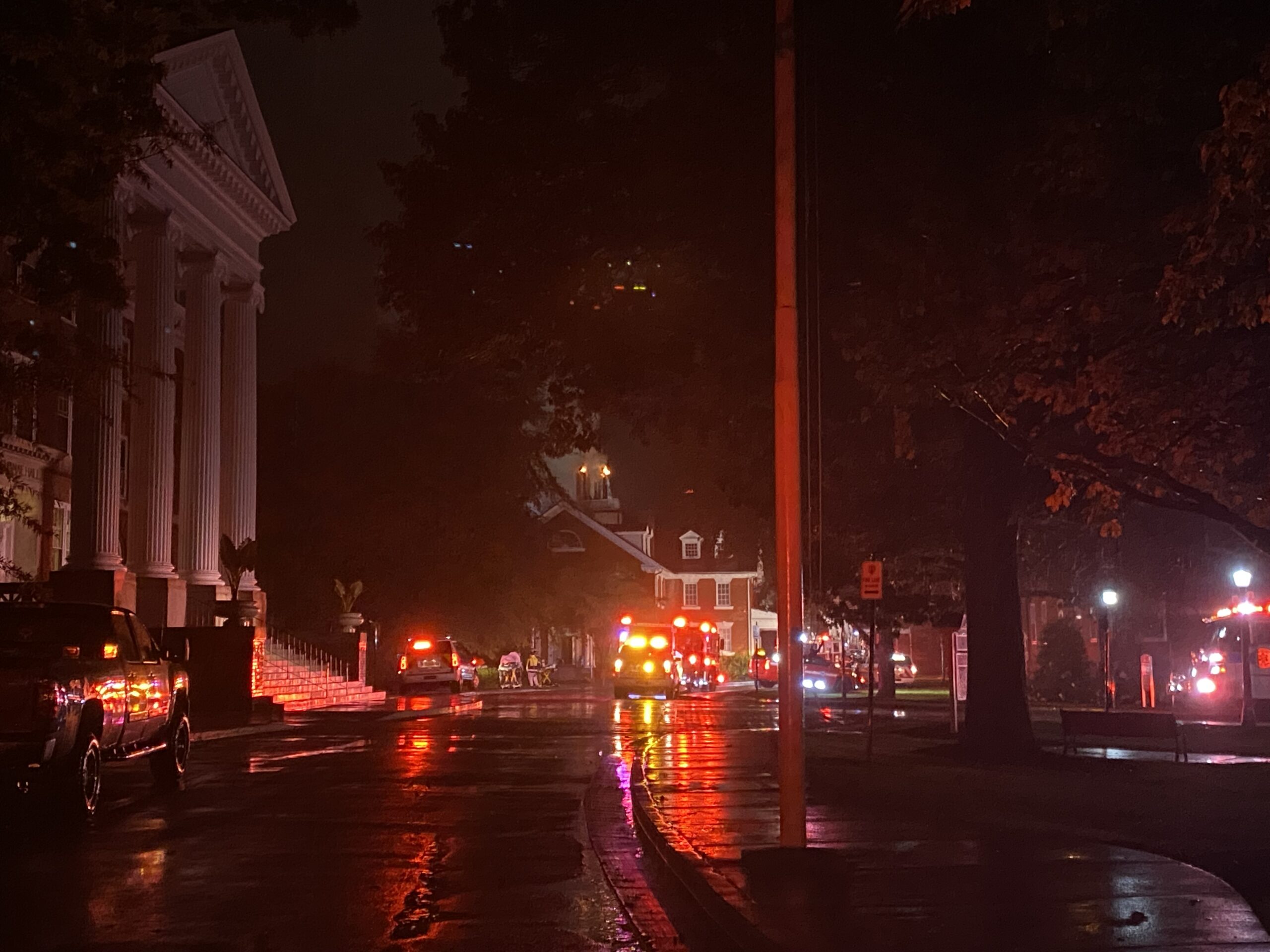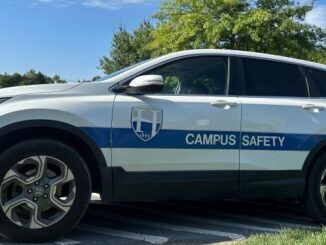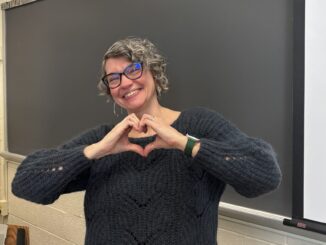By Maddie Garvis//
The Hood College Volpe Scholars and recipients of the 2020 and 2021 Davis Peace Prize presented their projects on Oct. 26.
Scott Pincikowski, German professor and Hood’s official liaison with the Davis Foundation, hosted the presentations.
“We’re here to celebrate some of our most innovative, and given the pandemic, some of our most resilient students,” Pincikowski said. “They pulled off some incredible projects this past year…it’s wonderful to be able to take a moment out of our busy schedules to celebrate students like this.”
The Volpe Scholar Award provides the chosen student(s) with up to $10,000 towards a learning experience that the student proposes. These experiences are an opportunity for students to study an educational topic or explore a future career path that they’re interested in. These scholarships come from a fund started by the Hood Board of Trustees in honor of former Hood President Ronald J. Volpe.
Gavin Turowski and Megan Reeve were the Volpe Scholars this year.
Turowski used his Volpe scholarship this past summer to study at the Military and African Diaspora Archaeology Field School through Southern Illinois University (SIU). As part of this program, Turowski worked at the excavation site of Fort Kaskaskia, located in Southern Illinois. According to Turowski, the fort was built to defend Louisiana from the French during the French and Indian War.
At this site, Turowski and other archaeology students discovered artifacts like Spanish coins, musket balls and Native American pipe bowls.
“Going to SIU on this excavation made me realize that archaeology helps people, it’s not just expanding the historical record,” Turowski said. “We focus so much on the big people, we sometimes forget about the little people…the little people do count too, people that made the wheel really move.”
Reeve used her Volpe scholarship toward a program at the Poggio Del Molino excavation site in Piombino, Italy. According to Reeve, Poggio Del Molino was the site of a luxury Roman villa, a pirate lookout and a fish sauce factory at different points of history.
Reeve and the other members of the excavation team found artifacts like oil lamps, shards of plates and other cookware and tiles from the various buildings that existed on the site.
“It felt like a fever dream. It has definitely been the highlight of my career so far. I came back in July, and I’ve been working as a cultural resources management tech since then, which sounds really exciting until you realize you’re just digging holes in the ground,” Reeve said. “And it’s because of the people I met on that trip. They have already helped me spring load my career in ways that I wouldn’t have been able to do without a really good field school.”
The Davis Peace Prize is a $10,000 grant from the Projects for Peace Program given to 100 students at partnered colleges and universities every year. The grant is used by students to carry-out their proposed Project for Peace over their summer break.
Recipients of the Davis Peace Prize were projects by Marhaennia English and a group project by Maryam Iftikhar, Sainabou Jallow and Maria Silva.
English’s project, Sustainable Income Generation for the Stigmatized Elderly Trans People in Indonesia, had the goal of employing elderly transgender people in Jakarta, Indonesia through a start-up laundry business. According to English, the elderly transgender community in Indonesia is socially disadvantaged and stigmatized so they tend to be less educated, leading to higher rates of homelessness and unemployment.
English had to complete her project virtually due to COVID conditions in Indonesia this past summer.
English said that the first month after the business’ grand opening in August 2021, they had four to 10 customers per day. That number has increased in past months. “As of today, there’s 30-plus more customers per day,” English said. “I’m very happy for them.”
Iftikhar, Jallow and Silva’s project, A Broken Bridge: Addressing Lack of Accessible Resources for Immigrants & Refugees, sought to launch an assistance fund to provide aid to immigrant communities who have limited access to government-funded programs.
“There’s this conception of immigrants as people who are a drain on programs that are funded by taxpayers,” Jallow said. “But most immigrants are actually unaware of these programs or are afraid to go to them…Most organizations helping undocumented immigrants are non-governmental, non-profits which survive on donations, they have been severely impacted in terms of their financial assistance capabilities due to the pandemic.”
Students interested in either the Volpe Scholar or Davis Peace Prize Programs can contact Lisa Littlefield at littlefield@hood.edu or Scott Pincikowski at pincikowski@hood.edu for more inform




Be the first to comment